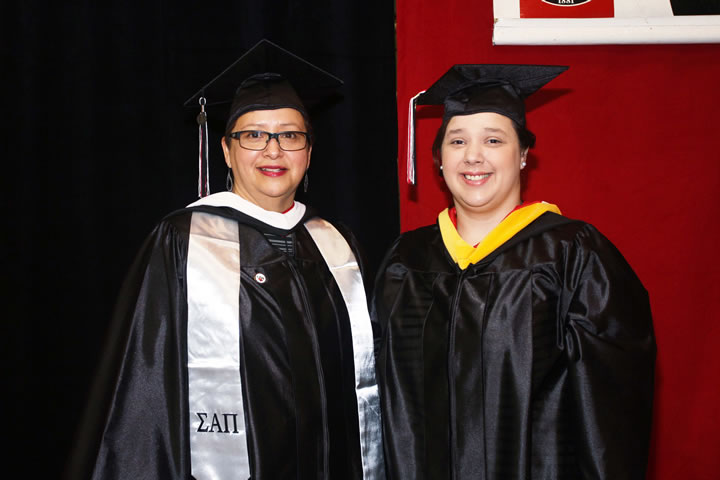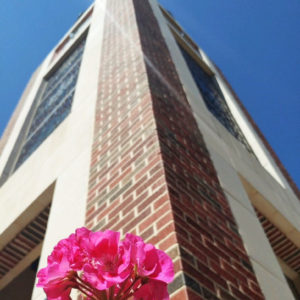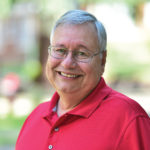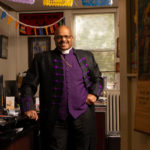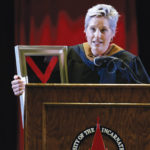
Ambassador James Creagan meets with Bolivian students at the Bi-National Center in Cochabamba, Bolivia. The students are studying English, the United States and its culture, and Creagan gave awards to the best students.
By Mary Frances Monckton Hendrix
As director of Incarnate Word’s Center for International Studies, Dr. James F. Creagan has spent the past three years preparing students for careers in diplomacy and foreign affairs. His work in Bolivia this summer proves that being prepared is critical when your country calls you to serve.
In June, the U.S. Department of State asked Creagan, a former U.S. ambassador, to represent President Barack Obama and Secretary of State Hillary Clinton in Bolivia. As the Charge d’Affairs, Creagan served as an interim ambassador in La Paz where he ran the U.S. Embassy and represented numerous agencies, including the U.S. Department of Defense, U.S. Department of Justice and the U.S. Agency for International Development (USAID).
“Our ambassador in Bolivia had been expelled along with a number of DEA (Drug Enforcement Administration) counternarcotics agents who were working with Bolivian police,” Creagan said. “Obviously, they had been opposed by the local coca growers. Then the Peace Corps left. I was called in because I had been an ambassador in places like Honduras, so I was asked to fill in … to be our president and secretary of state’s presence.”
Creagan performs with an Afro-Bolivian rhythm band in which men play instruments and women dance and sing. “The language of Bolivia is now Spanish, but the sounds and music are very African,” Creagan said. The U.S. Embassy supports this unique community in the foothills of the Andes and has provided funds for a cultural center.
Creagan served as U.S. ambassador to Honduras for three years after he was appointed in 1996 by President Bill Clinton.

Creagan performs with an Afro-Bolivian rhythm band in which men play instruments and women dance and sing. “The language of Bolivia is now Spanish, but the sounds and music are very African,” Creagan said. The U.S. Embassy supports this unique community in the foothills of the Andes and has provided funds for a cultural center.
“I was asked to pull together agencies, keep morale high and work with those people who have been working for years in Bolivia to reduce poverty, build businesses for women, provide alternative crops and further education,” Creagan said.
As the lead U.S. diplomat, Creagan met with Bolivian President Evo Morales and worked with Foreign Minister David Choquehuanca. Creagan delivered a July 4 address to the Bolivian people in the name of the people and
government of the United States.
“I stressed to Morales and the foreign minister that the United States understands that to be heard, we must first listen,” Creagan said. “As UIW professors, we don’t just lecture, we listen. I emphasized that Secretary of State Clinton had expressed to them that we want to be a good partner to Bolivia.
“I’m showing that we respect their culture and we want to work with them to improve the lives of their people,” he said. “We emphasize mutual respect – to not be talking ill of each other – and mutual interest. Certainly there are things we can do with Bolivia to help the people.”
Creagan said one of his tasks was to help focus the numerous U.S. agencies and aid organizations at work in Bolivia – some working to develop democracy at the grassroots level or helping farmers grow coffee, cocoa, bananas and papaya instead of the coca crops that feed the cocaine industry. Others are building roads or creating centers of justice to help people get birth certificates.
Emphasis is also made on the importance of education. Creagan said students come from villages all around to attend Carmen Pampa, a Catholic university in Bolivia.
Creagan speaks with a Bolivian woman about her coffee products. The U.S. Embassy supports projects, such as the one she leads, concerning organic coffee and other crops. Much of the aid from the U.S. goes to microenterprises managed by women.
“These students aren’t just the first in their families to go to college. Many of them are the first to go to school at all,” he said.
“Young students want to return to their villages to help out, to be doctors, nurses, work in ecotourism. The U.S.
Agency for International Development provided direct funding to help.”

Creagan speaks with a Bolivian woman about her coffee products. The U.S. Embassy supports projects, such as the one she leads, concerning organic coffee and other crops. Much of the aid from the U.S. goes to microenterprises managed by women.
He said he also talked with many university presidents to make it possible for Fulbright Scholars to study in Bolivia and to suggest the possibility of student exchanges with Incarnate Word. The Fulbright Program is sponsored by the federal government and is designed to promote mutual understanding between U.S. participants and the people of other countries.
“We also worked on conservation. The U.S. government would support local efforts to preserve jungles, water sources, etc., working with groups like the Nature Conservancy,” he said.
As an ambassador, he was carrying out a secular function, but he finds it interesting how the U.S. goals in Bolivia fit with the Mission of Incarnate Word as well.
“We stress faith, service, truth and education,” Creagan said.
“When I think of my students here (at UIW), I think that Bolivia is really a place they could serve. The U.S. government sends volunteers to places like that,” Creagan said. “It’s very important, I think, and very relevant for my university work. Not only to tell stories to students, but also so they can see the links between the United States and a typical country with which we work.”
